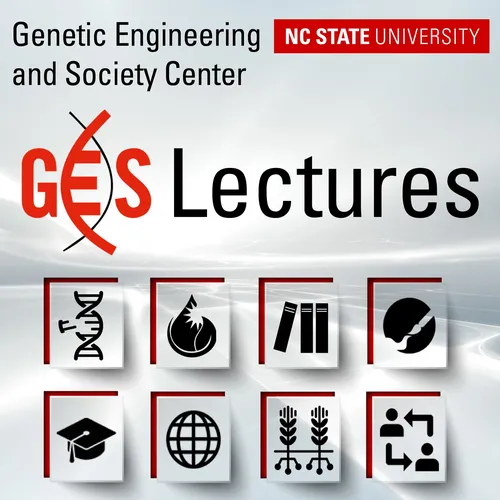S4E7 - Sumit Dhole - The missing ecology in gene drive research
- Author
- Patti Mulligan
- Published
- Tue 12 Oct 2021
- Episode Link
- https://ges-center-lectures-ncsu.pinecast.co/episode/f1aec927/sumit-dhole-the-missing-ecology-in-gene-drive-research
Genetic Engineering and Society Center
GES Colloquium - Tuesdays 12-1PM (via Zoom) NC State University | http://go.ncsu.edu/ges-colloquium
GES Mediasite - See videos, full abstracts, speaker bios, and slides https://go.ncsu.edu/ges-mediasite
Twitter - https://twitter.com/GESCenterNCSU
The missing ecology in gene drive research
Dr. Sumit Dhole, Research Scholar in Mathematical Biology, NC State
LinkedIn | Google Scholar
A discussion about some of the ecological aspects of population suppression using gene drives, and areas that need more research.
Abstract
Gene drives are rapidly emerging as a potential tool for controlling populations of disease vectors, invasive species and agricultural pests. The molecular research to create new and improved gene drives based on the CRISPR technology has progressed rapidly. While this research has been encouraging from the perspective of developing these tools, there remain large gaps in our understanding of how natural populations would respond to the release of gene drives. Dr. Dhole will discuss some of the ecological processes that will play an important role and that need more research in natural pest populations.
Related links:
- Rajagopalan PK, Curtis CF, Brooks GD, Menon PK. The density dependence of larval mortality of Culex pipiens fatigans in an urban situation and prediction of its effects on genetic control operations. Indian J Med Res. 1977.
- North, A., Burt, A. & Godfray, H. Modelling the potential of genetic control of malaria mosquitoes at national scale. BMC Biol 17, 26 (2019). https://doi.org/10.1186/s12915-019-0645-5
- James J Bull, Christopher H Remien, Stephen M Krone, Gene-drive-mediated extinction is thwarted by population structure and evolution of sib mating. Evolution, Medicine, and Public Health, Volume 2019, Issue 1, 2019, Pages 66–81, https://doi.org/10.1093/emph/eoz014
Speaker Bio
Dr. Sumit Dhole is an evolutionary ecologist who uses mathematical models to study how genes can spread through natural populations. For the past few years at NC State his focus has been on understanding how synthetic gene drives might behave if introduced into natural populations. While gene drives, which are highly invasive genetic constructs, may provide a solution for rapid and species-specific management of disease vectors and agricultural pests, a major concern is the potential of their unchecked spread to non-target populations. Through his work, Sumit tries to understand what factors and design features may allow synthetic gene drives to spread in safe, contained manners.
GES Center - Integrating scientific knowledge & diverse public values in shaping the futures of biotechnology.
Find out more at https://ges-center-lectures-ncsu.pinecast.co
